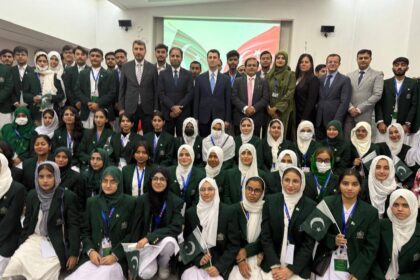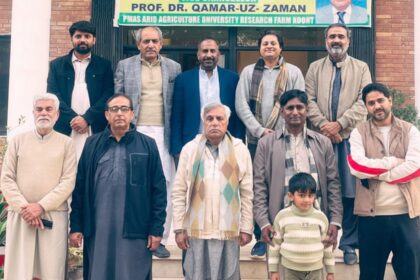Prime Minister Shehbaz Sharif has unveiled an ambitious plan to overhaul Pakistan’s National Police Academy, pledging sweeping reforms aimed at modernizing law enforcement training, boosting capabilities against terrorism, and strengthening the justice system nationwide.
Addressing trainee officers at the academy in Islamabad, Prime Minister Shehbaz reaffirmed the government’s resolve to root out terrorism and emphasized that the core mission of police must remain the protection of life and property and the fair delivery of justice. He highlighted Pakistan’s ongoing challenges with security, expressing confidence in the ability of law enforcement to meet these threats through advanced training and a renewed focus on professionalism.
Central to the Prime Minister’s announcement is a comprehensive modernization drive for the National Police Academy. This includes the construction of a new elite training school, establishment of a dedicated firing range, improved hostel accommodations, and international training exchanges. Notably, selected officers will be sent to China for a month-long advanced training module, with the aim of bringing the academy’s standards in line with leading institutions worldwide.
Reflecting on his tenure as Chief Minister of Punjab, Shehbaz Sharif pointed to key reforms previously introduced under his leadership, such as the formation of the Elite Police Force, the launch of Safe City Projects, the development of the Counter Terrorism Department, and the establishment of Pakistan’s first forensic laboratory in Lahore—all designed to enhance the state’s capacity to combat terrorism.
The Prime Minister, joined by Interior Minister Mohsin Naqvi, Information Minister Attaullah Tarar, and State Minister Talal Chaudhry, laid the foundation stones for the new firing range and hostel at the academy, and distributed laptops to trainee officers in a bid to further facilitate their education and skill development.
Interior Minister Naqvi shared details of the academy’s transformation, revealing that it had previously been neglected and likened to a “dumping station.” Under the new blueprint, the academy will now offer Master’s degrees, introduce new courses in cybercrime, criminology, and modern policing, and seek international collaboration, including potential partnerships with the United Nations. Trainer salaries will also be made more competitive to attract top talent.
In a solemn tribute, Prime Minister Shehbaz honored law enforcement personnel who have lost their lives in the line of duty, describing them as national heroes whose sacrifices have saved countless lives. He also directed the inclusion of cadets from Gilgit-Baltistan in the academy’s training quotas, and commended the dedication shown by officers from all provinces, underscoring the government’s commitment to a diverse, skilled, and unified police force.











